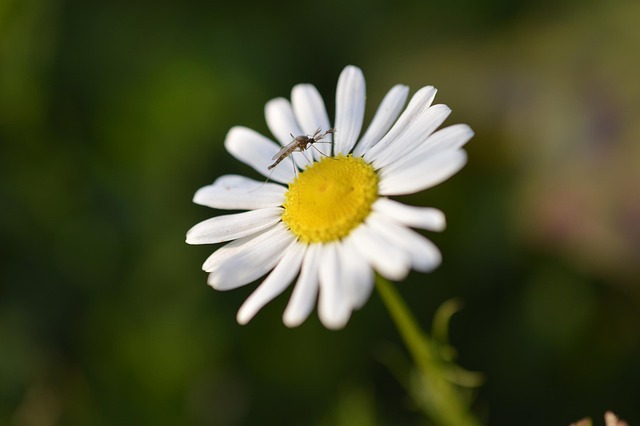Mosquitoes, though annoying, are complex insects with a lifecycle crucial for professionals in residential mosquito treatment. They pose health risks by transmitting diseases like dengue fever and Zika virus. Traditional control methods include chemical spraying and physical barriers, but modern approaches use targeted treatments, biological controls, and surveillance to offer safer, eco-friendly solutions. Residential mosquito treatment involves thorough inspections, precise pesticide applications, installation of screens, water management practices, and education on long-term prevention strategies for effective, sustainable protection against mosquitoes.
Tired of relentless mosquito bites disrupting your outdoor enjoyment? Professional mosquito control is the solution for homes and businesses, offering effective relief from these persistent pests. This comprehensive guide delves into the world of mosquitoes, exploring their behavior, health risks, and the evolution of control methods. We compare traditional to modern approaches, providing a detailed framework for residential mosquito treatment. Discover how to create mosquito-free zones, ensuring comfort and safety outdoors.
Understanding Mosquitoes: Their Behavior and Life Cycle
Mosquitoes are more than just a nuisance; they are intricate creatures with distinct behaviors and life cycles that professionals in residential mosquito treatment must understand to be effective. These flying insects go through four stages: egg, larva, pupa, and adult. In their egg stage, mosquitoes lay their eggs in stagnant water, which can include pools, ponds, or even small collections of water in containers around homes and businesses. Once hatched, larvae emerge and feed on organic matter in the water before transforming into pupae. During the pupal stage, they rest and develop into adults.
Adult mosquitoes are active during dawn and dusk when they seek blood meals to fuel their reproduction cycle. Female mosquitoes are responsible for biting and feeding on humans and animals, while males primarily feed on plant nectar. Their life span varies, but many species live long enough to breed multiple times, making effective mosquito control crucial for maintaining a comfortable living environment. Understanding this lifecycle is key to professionals developing strategic residential mosquito treatment plans that target all stages to achieve lasting results.
The Dangers of Mosquite Bites: Health Risks and Nuisance
Mosquito bites may seem like a minor inconvenience, but they pose more significant risks than one might think. These tiny insects are vectors for various diseases, including dengue fever, Zika virus, and malaria, which can have severe health consequences. Even in regions where these diseases are not prevalent, mosquitoes can transmit other illnesses like West Nile virus, causing fever, headaches, and in severe cases, encephalitis.
Beyond the health risks, mosquito bites are a significant nuisance, especially in residential areas and businesses. They disrupt outdoor activities, cause discomfort during sleep, and can damage morale and productivity. A controlled and effective residential mosquito treatment is essential to safeguard public health and ensure a peaceful, pest-free environment for both homes and commercial spaces.
Traditional vs. Modern Mosquito Control Methods
In the realm of mosquito control, traditional methods have long been the go-to for many years. These include spraying chemicals and using physical barriers like nets and screens. While they offer some level of protection, these approaches often rely on harmful pesticides that can be detrimental to both health and the environment. They also fail to address the root causes of mosquito breeding, such as stagnant water sources.
Modern mosquito control methods, however, take a more comprehensive approach. Innovations like targeted treatments, biological controls, and advanced surveillance technologies are reshaping how we combat these pests. For instance, residential mosquito treatment now employs eco-friendly solutions that target specific areas without affecting non-target organisms or the ecosystem. This shift not only ensures safer living environments but also promotes sustainability, making it a game-changer in both homes and businesses.
Residential Mosquito Treatment: A Comprehensive Guide for Homes and Businesses
Residential Mosquito Treatment involves a multi-faceted approach designed to eliminate and prevent mosquito infestations in homes and surrounding areas. It begins with an extensive inspection to identify breeding grounds and entry points, followed by targeted applications of safe, EPA-approved pesticides. Professional technicians also implement physical barriers like screens and zippers to restrict mosquito access, and they educate property owners on long-term strategies such as removing standing water and maintaining landscaping.
This comprehensive guide ensures not only immediate relief from mosquito bites but also sustainable protection against future infestations. By combining chemical treatments with non-chemical methods, residential mosquito treatment offers a holistic solution tailored to each unique environment, providing businesses and homeowners with a quieter, more enjoyable outdoor space.
In light of the above, it’s clear that professional mosquito control is a vital investment for both homes and businesses. By understanding mosquito behavior and exploring modern treatment options like residential mosquito treatment services, property owners can effectively manage these pests. Say goodbye to annoying bites and the health risks associated with them – a comfortable, mosquito-free environment is within reach. For comprehensive solutions tailored to your needs, consider reaching out to professionals specializing in residential mosquito treatment.
